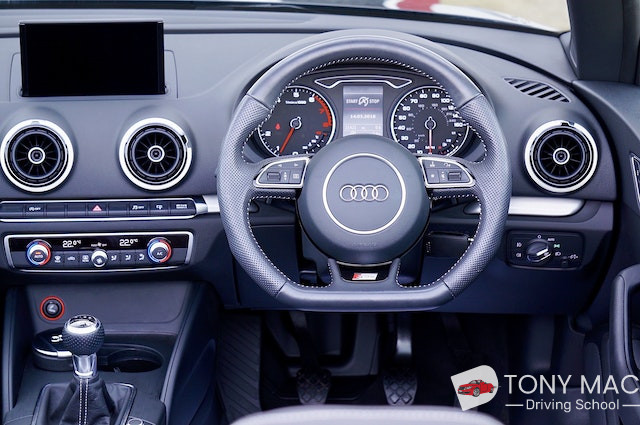The Importance of Driving Practice: Building Skills for Safe and Confident Driving
Driving is a vital life ability that promotes self-reliance, helps with transport, and plays a significant function in social and financial movement. Nevertheless, mastering this skill needs detailed driving practice. This article delves into the importance of driving practice, the parts that add to effective knowing, and ideas for striving chauffeurs to improve their driving skills.
Understanding the Need for Driving Practice
Driving is not merely about managing a lorry; it incorporates numerous skills and knowledge locations that ensure safety for the driver and others on the road. Regular driving practice helps people end up being acquainted with various driving situations and hone their skills through repeated exposure. Here are essential reasons driving practice is important:
- Skill Development: Like any other skill, driving needs time and consistent practice to establish efficiency. Knowing road signs, dealing with the car, and understanding traffic laws are basic.
- Enhanced Confidence: Regular practice enables new motorists to build confidence in their abilities. With each session, they end up being more comfortable behind the wheel, reducing anxiety during real-life driving circumstances.
- Safety Awareness: Driving practice teaches chauffeurs about possible risks and how to respond to them, cultivating safe habits that can prevent mishaps.
- Road Familiarity: Navigating different roadways, environments, and climate condition is crucial for a well-rounded driving capability. Practicing in different situations prepares drivers for real-world challenges.
- Managing Distractions: Today's driving environment can be disorderly, with various interruptions. Repetitive practice assists chauffeurs learn how to decrease diversions and concentrate on the road.
Elements of Effective Driving Practice
Reliable driving practice is structured and goal-oriented. It typically includes the following elements:
| Component | Description |
|---|---|
| Dual Control Vehicles | Specifically developed automobiles with controls for both the instructor and student to guarantee safety. |
| Simulated Environment | Practice in safe, controlled environments before venturing into real traffic. |
| Mentorship | Knowing from experienced drivers who can supply guidance and useful feedback. |
| Practice Tests | Taking practice driving tests to assess preparedness for the actual driving examination. |
| Development Tracking | Keeping a log of session to monitor improvements and recognize areas that need attention. |
Tips for Effective Driving Practice
For aspiring chauffeurs, having a structured technique to practice can yield the best outcomes. Here are some advised pointers to follow:
- Create a Practice Schedule: Consistency is key. Develop a regular driving schedule that permits ample practice time tailored to different driving scenarios.
- Start with Basics: Begin with necessary skills like starting/stopping, using mirrors, signaling, and parking in low-traffic areas before progressing to more complex maneuvers.
- Progressive Progression: Once standard skills are mastered, slowly present more challenging circumstances such as highway driving, night driving, and harsh weather conditions.
- Seek Feedback: Encourage feedback from an experienced driver to recognize areas of enhancement and reinforce safe driving practices.
- Understand Driving Laws: Stay informed about traffic laws and guidelines, as this understanding will improve positive and compliant driving.
- Stay Calm and Patient: Learning to drive can be demanding. Practicing under calm conditions with a patient instructor can foster a more positive learning experience.
The Importance of Professional Driving Lessons
Participating in professional driving lessons is an advantageous addition to personal practice. Professional instructors supply structured lessons that highlight safety, legal compliance, and reliable driving techniques. Here are just a few benefits to think about:
- Expert Guidance: Instructors have substantial experience and training, enabling them to impart valuable understanding to trainees.
- Access to Resources: Many driving schools provide resources such as handbooks, driving simulators, and practice tests.
- Focused Learning: Professional lessons frequently deal with specific spaces in knowledge or ability, helping students to advance quicker.
FAQs about Driving Practice
How long should I practice driving before taking the test?
Many states need a minimum variety of practice hours before you can take the driving test, frequently around 30-50 hours of behind-the-wheel practice. This differs by state, so it is suggested to inspect local requirements.
Can I practice driving without a licensed driver?
No. You must practice with a certified driver who satisfies your local driving regulations, generally a moms and dad, guardian, or driving instructor.
What should I focus on in my driving practice?
Focus on locations such as road signs, lane modifications, parking, defensive driving techniques, and handling different traffic conditions. Setting particular goals for each session can assist track your development.
How can I lower anxiety while practicing driving?
Consider practicing in familiar and low-traffic areas at first. Likewise, bringing a calm and encouraging traveler can assist alleviate anxiety.
What is the best time of day to practice driving?
Mid-morning or early afternoon when traffic is lighter can be ideal for brand-new motorists. Nevertheless, practicing at tonymacdrivingschool.com can help diversify skills.
Driving practice is a necessary aspect of becoming a qualified and positive driver. By devoting to a structured practice regimen, participating in professional driving lessons, and consistently sharpening skills, people can prepare to navigate the intricacies of the road. With safety as the top priority, investing time in driving practice sets the foundation for a lifetime of responsible driving.

